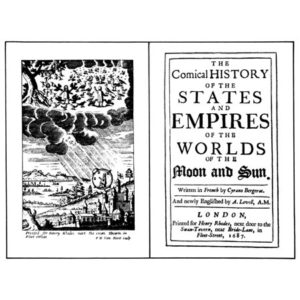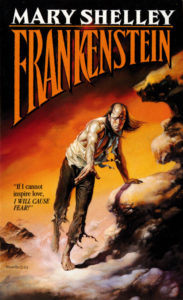Last month, I was thrilled to participate in the N.E.O. Voice Festival, which celebrates new music written for the voice. I got to sing for and with some incredible new music composers in two different concerts. For one of those concerts, Out of the (Voice) Box, I worked with my talented and insanely creative composer friend, Peter. The piece we put together for the concert is called “Empire 1,002,020.” It takes place in the year of 1,002,020, when humans live in interconnected embryonic containers that convey vibrational and electric information through liquid channels. Watch below if you dare…
I wasn’t sure how the wildly futuristic, horror-inspired elements of the video would be received. But I needn’t have worried, because my fellow new music weirdos loved it. For the rest of the festival, I was known as The Horror Sci-Fi Dystopian Opera Girl, and it was pretty grand. But then, someone in the festival commented that we could use more horror sci-fi dystopia in opera. And that made me wonder: why isn’t there much horror sci-fi dystopia in opera? Or plain horror in opera? Dystopia? Sci-fi?
Welcome to the series of blog posts where I have weird and pointless thoughts about horror, sci-fi, and dystopia in opera, or the lack thereof. There are a lot of definitions, literature, and history to cover here, so I’ll try to keep everything in manageable, <1,000-word chunks. Today, I’ll start with the first part of the title and a deceptively complex question:
What is Science Fiction?
The definition of science fiction, also known as sci-fi, is constantly debated. At its simplest, though, sci-fi is a type of speculative fiction—it incorporates elements that don’t exist in reality.
You might notice that such a broad definition makes fantasy a type of speculative fiction, too, and you’re right. Some bookstores put sci-fi and fantasy on the same shelves because fundamentally, both genres explore things that don’t really exist. But unlike fantasy, sci-fi often has a more academic air to it. Sci-fi doesn’t wave its hands and say that so-and-so happens through magic—sci-fi tries to provide an explanation, usually through technology.
This is not to say that sci-fi is inherently more intelligent or well thought-out than fantasy. Some fantasies have intricate languages and rules that instruct their magic systems, and some sci-fis explain superpowers through bites from radioactive spiders. This in turn has created the separation between “soft sci-fi,” which explains things with nonsensical yet forgiving technobabble, and “hard sci-fi,” which explains things with a firm adherence to existing science. Still, in general, sci-fi rises from “What if?” questions changing society. What if aliens invaded? What if AI surpassed human intelligence? What if you could travel to the past? There’s a stereotype that sci-fi doesn’t have good characters, and for good reason. Sci-fi isn’t usually about characters—it’s about ideas affecting society. Sci-fi as a genre ruminates over humanity-changing, technology-inspired innovations.
Let’s think about the history of sci-fi in literature. Because of sci-fi’s focus on society, some people argue that the genre begins with the Epic of Gilgamesh from about 2000 BCE. But there’s not much science or technology to be found in Gilgamesh, so others argue it’s closer to fantasy. The Ramayana from 400-500 BCE describes special, sci-fi-ish flying machines, but some argue that true science fiction couldn’t begin until the Scientific Revolution between the 17th and 19th centuries.
 So what kind of sci-fi was being passed around during the Scientific Revolution? Well, in the 17th and 18th centuries, satirical sci-fi seemed to be the fad. Cyrano de Bergerac’s Comical History of the States and Empires of the Moon, published in 1657, satirically describes rocket-powered space-flight. Gulliver’s Travels, written by Jonathan Swift and published in 1726, does a very similar thing.
So what kind of sci-fi was being passed around during the Scientific Revolution? Well, in the 17th and 18th centuries, satirical sci-fi seemed to be the fad. Cyrano de Bergerac’s Comical History of the States and Empires of the Moon, published in 1657, satirically describes rocket-powered space-flight. Gulliver’s Travels, written by Jonathan Swift and published in 1726, does a very similar thing.
It’s not incorrect to call these works “true sci-fi,” but it’s not necessarily correct, either. Satire’s goal is to critique society, so you have to wonder: are the sci-fi elements appearing in satire asking “What if’s?” about society, or are they farcical tools outlining a societal ideal? You can see why people still debate over what sci-fi even is today.
 Regardless of when the first sci-fi novel was published, there’s one work that most scholars agree had a huge impact on the genre. That work is Frankenstein, written by Mary Shelley and published in 1818. In the same century, we were blessed with works by Jules Verne and H. G. Wells, both of whom have been nicknamed the “Fathers of Science Fiction.” In other words, sci-fi experienced a boom in the 19th century and has continued to enjoy popularity today.
Regardless of when the first sci-fi novel was published, there’s one work that most scholars agree had a huge impact on the genre. That work is Frankenstein, written by Mary Shelley and published in 1818. In the same century, we were blessed with works by Jules Verne and H. G. Wells, both of whom have been nicknamed the “Fathers of Science Fiction.” In other words, sci-fi experienced a boom in the 19th century and has continued to enjoy popularity today.
Now we have a broad understanding of science fiction and its history. We haven’t even touched half of the words in the title yet, but I promise this information will be important later on. Next time, look forward to a quick dive into the histories of horror and dystopia in literature…


This Post Has 2 Comments
I was pretty pleased to discover this great site. I need to to thank you for your time for this particularly fantastic read!! I definitely appreciated every part of it and I have you book marked to see new stuff on your blog.
Thank you very much! I’m honored 🙂